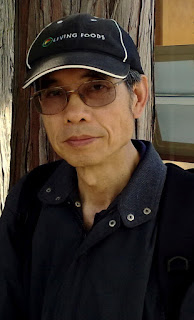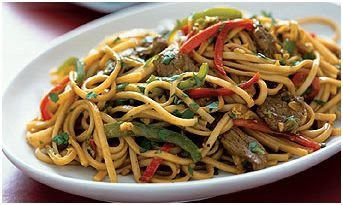Born in 1951, I am a baby boomer. Recently when I get a chance to be meeting with friends of my age group, the chatting topics are more or less related to the planning of retirement. Indeed, the baby boom generation has entered their retiring stage of life.
What a shame, time has to pass by so swiftly that all of a sudden I am turning 60. Now recalling my childhood memories in 1950's, it feels like just a short moment ago. From time to time, I fall into the dream-like past. I think I should pass these bits and pieces of my childhood memories onto my children.
Taiwan of 1950's was still in its agricultural economy. Being an agriculture island, the living style in those days was simple and hard. A rice farmer worked so hard whole year round in the paddy with his water buffalo could only expect to feed his family without much surplus for saving in the bank. If there was a typhoon hit unfortunately, then the whole family got to cut their food in order to make end meet. Sometimes, the loss was too big to fix, selling child was not unusual. My mother was actually an example of this misfortune. Her story is accessible in this link.
We owned some farming land in my grandfather's day. During 1950's, KMT government launched Land Reform program aiming to improve farmers' living and divert the landlords' asset to investing in other industrial projects. This program, as I had heard vaguely from my father when I was young, made a lot of farmers cheerful and many resentful landlords at the same time. I could sense what my father felt about the Land Reform from his admonishing to me a few times that I should never get involved in politics.
Before all our lands were transferred to the farmers, we managed a small piece of land by our selves. That was my last impression of our family's farm land. One day, I think it was an autumn afternoon, I was brought along to that land.
It was the harvesting day of our rice paddy. We hired a couple of farmers to do the job as none of our family members was able to do such tough task. To local customary, the employer was supposed to provide daily the three meals plus two refreshments for the breaks in between the meals.
I was not yet at the school age, but I have retained a vivid memory of that day's field visit till now, so I should be around four or five years old then.
Three of my elder sisters hand carried the lunch to the harvesting site for the farm workers at the mid day. The sun was scorching hot. When we arrived, sister ran to ask the farmers to stop for a lunch break. I saw them walked out of the rice paddy with a broad rimmed cone top bamboo leave hat on their heads and a thin shorts only on their body. Their skin was almost dark brown. They smiled, and their eyes beamed at the food placed on the ground attentively as if they had been starved for a long time.
So I pulled down the shorts myself and squatted down and did a quick poo. Then, another problem came up, no toilet paper. In 1950's Taiwan, the toilet paper was as abrasive as the packaging tray of eggs. It looked like they were made of rice stalk because of its yellowish color and the stem chips were visible. But it was reasonable for the lowest grade of paper being used to wipe the bum clean. The problem was sister did not bring toilet paper along on that day.
She searched with her eyeshot on the ground and picked up a stone as big as a golf ball with the smoothest surface to give to me. I think I was pretty smart then as I got what she meant with that stone. I grabbed it and gently scratched my ass hole, threw that stone away, and pulled up my shorts. Felt relieved.
As a post World-War II baby boomer, we have witnessed and experienced the dramatic changes and improvement of living standard.
I am most impressed by the evolution of toilet happened during our generation. Until mid 1960's, almost all of the toilets, my home's, schools', bus station's, were of the type as shown in the sketch. On the center of the raised platform is a ditch with a slop leading to a big cavity in the ground outside of the house, and you know that's where all the shit and urine go to through that sliding slop. When you use the toilet, you firstly step up the two stairs and enter the cubicle, turn around, step one foot across the ditch, squat down and then you are ready to go. Oh yes, remember to close the door. Outside at the back of the cubicle is a wooden lid that covers up the waste storing cavity to prevent people from stepping into the hole.
Naturally it is always very stinky even though the toilet cubicle is usually built with maximum ventilation openings on the top. So it is normally located seprately from the house. Summer in Taiwan is hot and this makes the smell in the cubicle terrible.
Who empties the waste for you? Expensive?
Well, no fee charged for the removal of the waste, nonetheless, now and then, we even saw a bunch of vegetable was left by the lid of the waste storing cavity for us. The kind farmer who fetched the waste to use as fertilizer for his farm land did this as a return for using the free fertilizer.
So because of the nature of this kind of toilet facility, the stinky smell makes every user only occupies it as short a time as they can. In contrary to modern toilet which some users bring their books or newspaper in to read while the major task is being done. So I suppose that was why constipation was rarely heard of in the olden day, because everyone can not wait to run away from it as soon as the feat is done.
Once, when I was about 10 years old, I used the toilet early one winter morning. I heard some noise from outside of the cubicle when I was only half way through my bowl movement, suddenly a good blow of wind carrying the most vintage odor of the waste hit my buttock and my smell sensor. I realized that was that kind farmer doing his respectful deed. I held my breath, skillfully stopped at where I was, rapidly wiped the butt clean and rushed out of the cubicle, almost suffocated.
Then in 1963, we moved to live in a new house which had two toilets both were of the flux type of modern standard. What a big leap of toilet evolution.
I also saw a calculator as heavy as some 10 kgs. I used it myself actually, when I was in my military service at the Cadet Training Center in 1974, for summing up cadets competence assessments. Within just 4 years, in 1979, I was shown by my colleague his pocket calculator powered by one AAA battery, doing faster calculation than the one I used earlier.
Then the baby boomer saw many other things changed in rapid modification process: mobile phone, computer, television, data storage device, recorder, video camera, and such and such, the list goes on. All are appealing to make our life easier and happier. But are people's life easier and happier now compared to 1950's?
The baby boomer say: nope! Pursuing only the material pleasure is not the answer for happiness, there got to be some other stuff we have overlooked.











.jpg)




.jpg)
.jpg)
.jpg)
.jpg)
.JPG)

.JPG)















